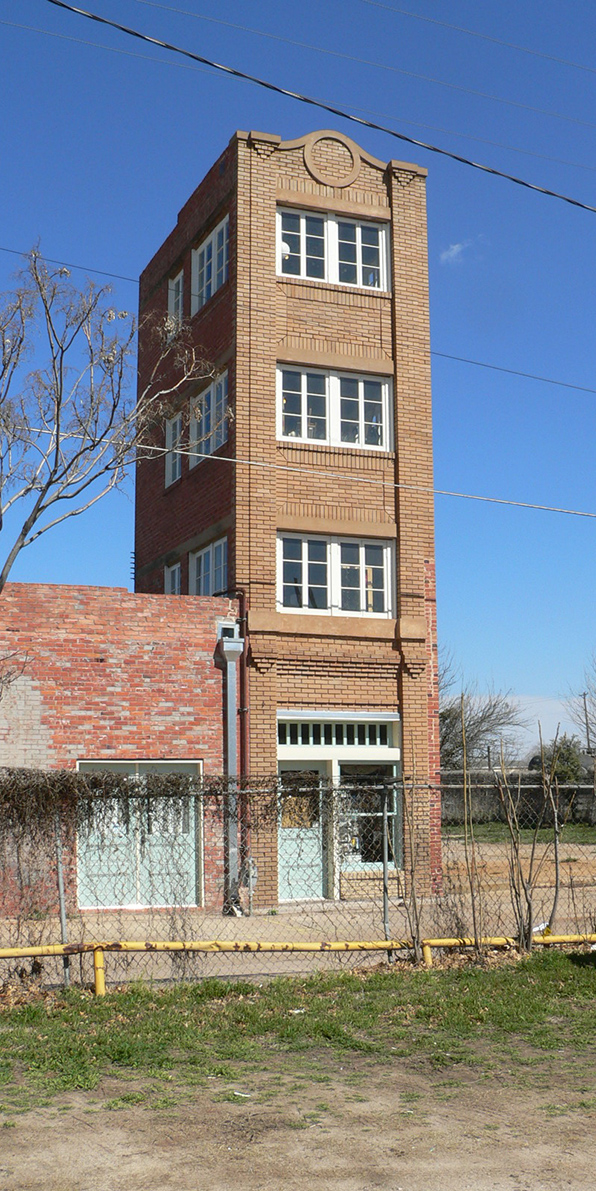Just off a bit from the main downtown area of Wichita Falls, Texas is the world's smallest skyscraper. The Newby-McMahon Building was built in 1919 and its diminutive size is the outcome of a fraudulent investment scheme following a 1918 oil boom.
The building's owner, Augustus Newby, solicited investors to get in quick to contribute to a proposed new high-rise annex to his building to help solve the lack of office space and the booming economy. And, like many transactions associated with those kinds of economic speculations, things did not really turn out as the investors had hoped. Upon closer examination, the drawings depicted a tall, narrow building, but only four floors and only 480 inches tall, not the 480 feet tall as had originally been surmised. The tiny floors, each only about 9 feet by 12 feet are really only a single, small room each.
Newby was sued of course by his investors, but as the blueprints clearly said 480 inches, not feet, he was not found liable for the fraud. With no elevator installed and no interior stair constructed, access to the upper floors was initially conveyed by exterior ladders. Not surprisingly, Newby cut out of Wichita Falls before the building was complete, taking the remainder of the investor's money with him.
Subsequent fires and the oh-so-predictable collapse of the oil boom rendered the building vacant until taken over by the city in 1999 and eventually renovated. Its official title as the World's Smallest Skyscraper came from none other that Ripley's Believe It or Not magazine in the 1920's. It is now listed on the National Register of Historic Places, proving once again that a good story and an odd building will triumph over time. Or maybe an odd story and a good building...
In either case, what struck me was the proportion of the building and its similarity to its industrial cousins across town - the ubiquitous grain elevators of the West and Mid-West. I have heard talk of some of these grain elevators being converted into houses, but I wonder if the Newby-McMahon building should have been converted into a grain elevator, albeit a rather fancy one.




